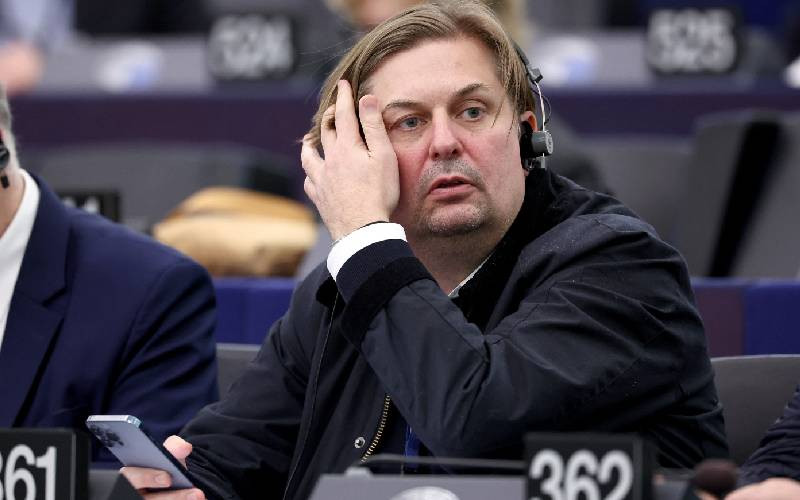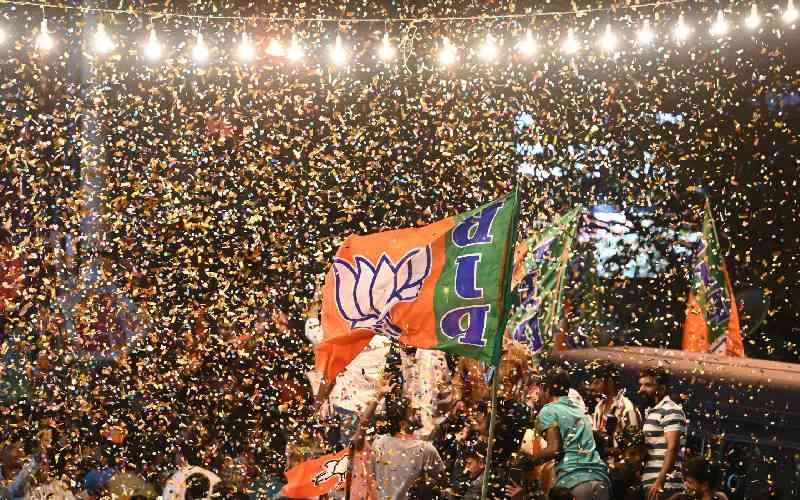By Public Watchdog
If anyone doubted that Kenya was on a momentum of change, then last week must have been a wake-up call with respect to the resoluteness of the Judiciary arm of government. This is with respect to decisions of the high court on the election date and a decision of the Judicial Service Commission to recommend suspension of Lady Justice Nancy Baraza.
The suspension is pending appointment of an independent tribunal to determine her continued ‘fit and proper’, as a custodian of justice in the light of serious allegations of misconduct involving a security guard, Rebecca Kerubo. It was certainly an hour of great expectation from the Judiciary on both cases but Kenyans were not disappointed.
In a landmark ruling, three judges of High Court led by Justice Isaac Lenaola and comprising Lady Justice Mumbi Ngugi and Justice David Majanja made what can be characterised as an ingenuous Judgement. How?
Critical pillars
The judges put the trigger of the process of the next elections on dissolution of Coalition and/or the end of term of the Tenth Parliament on January 15, 2013, whichever happens first. What then, are the compelling issues?
First, we must all acknowledge that Kenya has indeed changed for the better as clearly underpinned by the new constitutional order with growing independence of institutions, which act as critical pillars in our shared quest for improved governance, accountability and justice for all.
Last week’s events show resoluteness of those charged with responsibilities of public trust.
Courts’ independence must be preserved at all costs and their decisions respected and/or challenged through the appropriate appeals. Further, if there was any doubt of an emerging intolerance and public commitment to rein in any form of impunity, then the Baraza case has shown that even her position as Deputy Chief Justice could not insulate her against public accountability.
Next week is, again, a week of great expectation, with the people of Kenya and the world at large whose eyes and ears are fixated at The Hague, on what could yet prove as another shocker for Kenya from the International Criminal Court (ICC).
It will not only be an overwhelming long days and nights for the six Kenyans facing confirmation charges at the world court, but also for the victims of post-election violence as well as relatives, friends and supporters of either side.
We may be witnessing displays of normalcy, but the hard reality is that the challenges are too real and serious enough for anyone to ignore — no matter the portrayal of strength. No matter the outcome, the ICC must be seen to offer justice to all.
Reform’s legacy
Second, with respect to dissolution of the Grand Coalition Government, the people expect urgent resolution on the exact date, a responsibility that now rests with President Kibaki and Prime Minister Raila Odinga. As the joint principals in the Grand Coalition they must agree in writing on such dissolution. Why?
It is dissolution of the Coalition that would trigger the polls process despite the decision on actual date being vested on the Independent Electoral and Boundaries Commission (IEBC).
Stay informed. Subscribe to our newsletter
The pertinent question now begs: Can the Executive arm of Government led by the President and the Prime Minister disappoint or prove they are dependable custodians of public trust? Can they read correctly the mood of the country? Everyone, perhaps with exception of a few political actors, wants a credible election this year.
IEBC prefers a December date to allow for sufficient preparation time. Can the President and Prime Minister consolidate the grand coalition reform’s legacy by facilitating a December 2012 election? Indeed Kenyans expect nothing short of elections this year.
Third, it may also be argued correctly that the term of President Kibaki ends with the swearing in of the next president notwithstanding the fact that his term ends on December 29, the date he was sworn-in in order to ensure national stability.
However, the realisation of a succession plan during 2012 further hinges on whether there is finality in the presidential election results. That is in the event the two principals agree to dissolve the Coalition.
In reality, however, the possibility is that the outcome of the presidential elections may lead to a conclusive outcome but a re-run, if no one candidate meets the constitutional 50 per cent-plus one. In the event of this, it is appropriate for the country to start the process of transition in December, so that if there is no outright winner, then IEBC can undertake a presidential elections re-run in January 2013.
It is, therefore, Public Watchdog’s view, not whether the general elections would be held in December, but what date in December 2012? President Kibaki on his New Year message promised Kenyans this year’s elections and his commitment to hand over power the next leadership elected by the people of Kenya.
Thus, Mr President and Mr Prime Minister remove this national uncertainty and anxiety and now as that is just and right, this being a matter of compelling public interest.
-The author is an opinion leader who prefers to remain anonymous.
Comments and suggestions to
[email protected]
 The Standard Group Plc is a
multi-media organization with investments in media platforms spanning newspaper
print operations, television, radio broadcasting, digital and online services. The
Standard Group is recognized as a leading multi-media house in Kenya with a key
influence in matters of national and international interest.
The Standard Group Plc is a
multi-media organization with investments in media platforms spanning newspaper
print operations, television, radio broadcasting, digital and online services. The
Standard Group is recognized as a leading multi-media house in Kenya with a key
influence in matters of national and international interest.
 The Standard Group Plc is a
multi-media organization with investments in media platforms spanning newspaper
print operations, television, radio broadcasting, digital and online services. The
Standard Group is recognized as a leading multi-media house in Kenya with a key
influence in matters of national and international interest.
The Standard Group Plc is a
multi-media organization with investments in media platforms spanning newspaper
print operations, television, radio broadcasting, digital and online services. The
Standard Group is recognized as a leading multi-media house in Kenya with a key
influence in matters of national and international interest.








